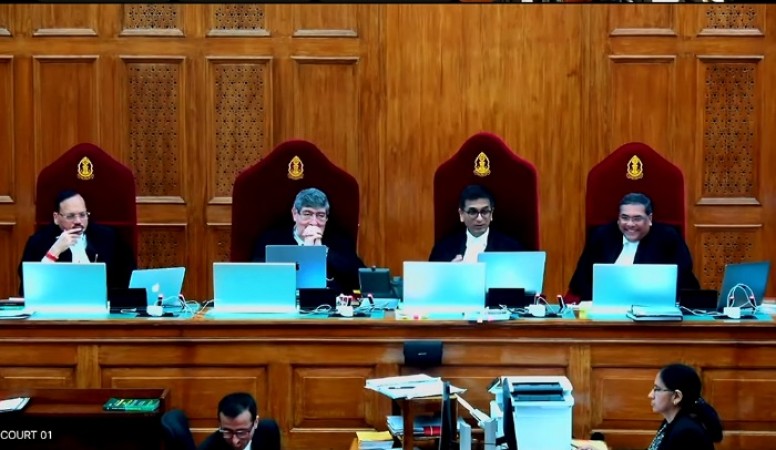
The Supreme Court delivered its judgment regarding challenges against the abrogation of Article 370 provisions by the Central government. This move by the BJP-led Centre on August 5, 2019, effectively revoked the special status granted to Jammu and Kashmir, restructuring the erstwhile state into Union territories. Security measures were diligently in place to maintain peace during this period.
The five-judge bench of the apex court, after daily hearings from August 2 and ultimately reserving its judgment on September 5, delivered its verdict today.
Justice SK Kaul, in alignment with Chief Justice DY Chandrachud, emphasized that the primary intent behind Article 370 was to gradually integrate Jammu and Kashmir with the rest of India. He underscored that the requirement of the J&K Constituent Assembly's recommendation within Article 370 cannot be interpreted in a manner that negates its broader purpose.
Additionally, as part of the ruling, CJI DY Chandrachud directed the Election Commission to conduct elections for the Legislative Assembly of Jammu and Kashmir by September 30, 2024. The court further mandated the restoration of statehood at the earliest.
Chief Justice DY Chandrachud also confirmed the validity of the decision to establish the Union Territory of Ladakh, separate from Jammu and Kashmir.
Key Conclusions by CJI on Article 370 Abrogation:
Jammu and Kashmir lost any element of sovereignty post the signing of the instrument of accession.
No internal sovereignty for Jammu and Kashmir.
Challenges to the proclamation of presidential rule were dismissed.
The exercise of the president's power must be reasonably connected to the objective of presidential rule.
Parliament's legislative power for the state cannot exclude law-making authority.
Article 370 was initially a temporary provision.
Dissolution of the Constituent Assembly did not restrict the presidential order.
Amendment of Article 370 via amending Article 367's interpretation clause was beyond authority.
The president's use of power was not in bad faith, and no concurrence was needed with the state.
The exercise of power under 370(1)(d) applying all provisions of the Indian Constitution to Jammu and Kashmir was deemed valid.
The continuous exercise of power by the president showed an ongoing integration process, validating co 273.
The Jammu and Kashmir Constitution is declared redundant.
Presidential use of power was not in bad faith.
This landmark decision by the Supreme Court delineates crucial aspects of Article 370 and its abrogation, shaping the future constitutional landscape concerning Jammu and Kashmir's integration with India.
Supreme Court Pronounces Verdict on Article 370 Abrogation Issue